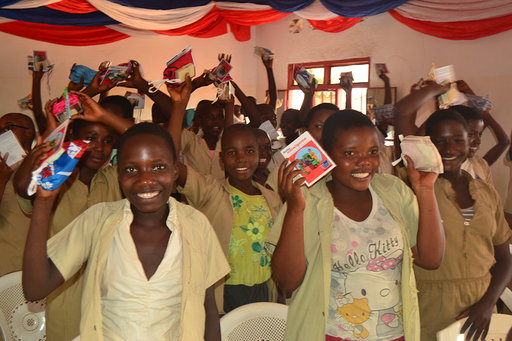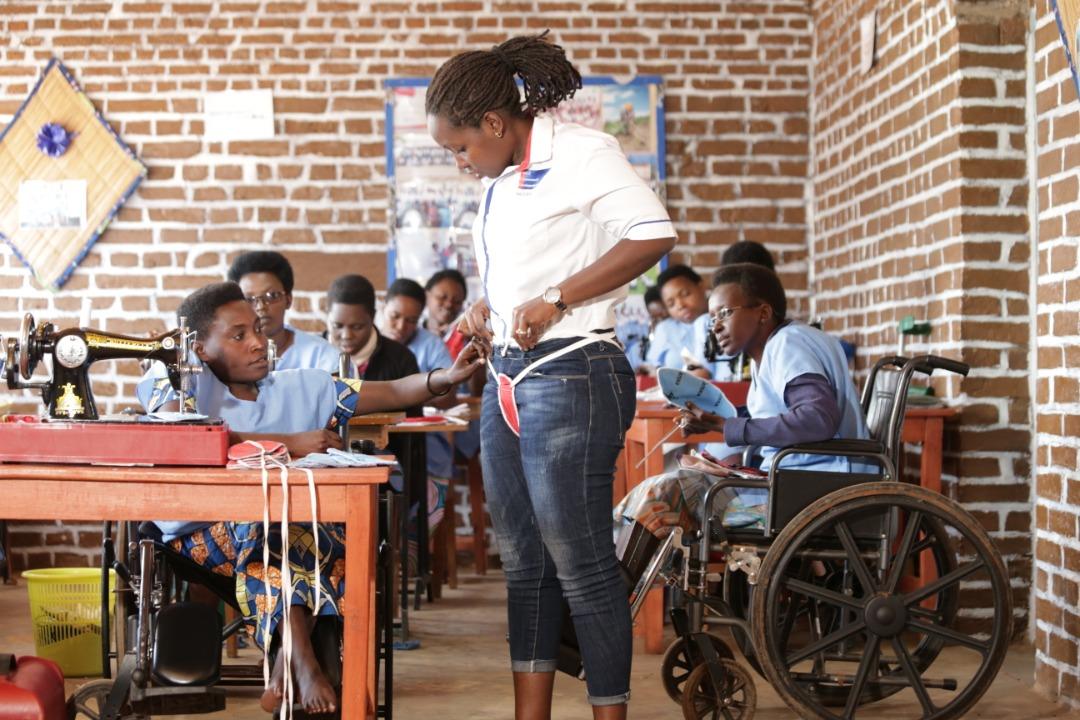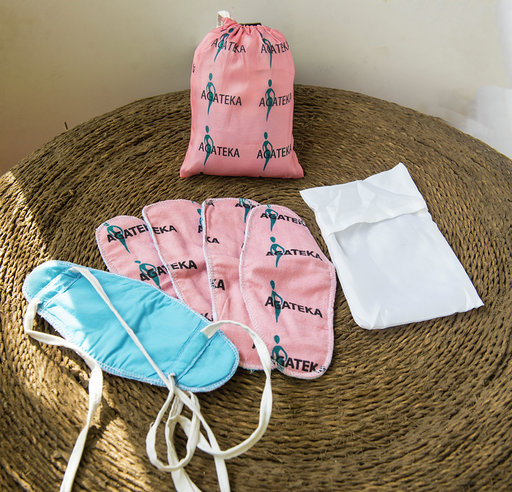In Burundi, 80% of women don’t have the means to regularly provide themselves with sanitary pads, tampons, and underwear. Use of inappropriate solutions is therefore frequent and leads to many gynaecological complications.
The lack of access to sanitary protection constitutes one of the leading causes of school leaving for young Burundian women. Compounding this are the disastrous hygiene conditions at many of the country’s schools, where the access to water and toilet facilities are often limited.
Therefore, while nearly 90% of young women are enrolled in the first year of the primary cycle, there are just 60% at the age of 13, the average age of the emergence of their first periods. Many young women prefer to stay at home rather than go to school and miss an average of four days of class each month. They get behind on their classes, flunking tests, become discouraged and, far too often, abandon their studies. The consequences due to these dropouts are devastating: precocious marriages and pregnancies, as well as limited career prospects. This is how the poverty cycle is perpetuated for these young women and their families.
In these fields, the NGO SaCodé holds expertise in providing training and advocacy for communities.
The sanitary pads are made at production centres deployed within eight Burundian provinces and later enjoyed by 450 000 young women and girls who will then have access to washable and reusable sanitary pads allowing them to pursue their economic activities or attend school during their menstruation period. The sale of these pads will constitute a source of revenue for the association.
– Opening of a production centre in Makamba province employing 20 young women trained in the production of sanitary pads
The production centre is equipped and employs 20 young women who produce 32 000 packs of pads per year.
– Identification of 20 intermediate schools and evaluation of the level of knowledge, attitudes, and practices at the start and end of the project
The evaluation pertains to the management of menstrual hygiene in schools.
– Training of school management committees (SMC) and organisation of health clubs
The SMC of each establishment are trained on the theme of hygiene in schools. The teachers in charge of the clubs are trained in menstrual, sexual, and reproductive health and undertake advocacy actions.
- Advocacy actions outside of the school environment and identification of community health agents.
The advocacy actions are undertaken by the NGO SaCoDé among members of the community, particularly women. The female leaders of each community are identified and trained in turn. They then train the women in their community in turn.
- Free distribution of sanitary pads to 10 000 intermediate students identified by the teachers.
The most vulnerable young women are identified by their teachers and then enjoy free sanitary products.
- Establishment of Associations Villageoises d’épargne et de crédit (AVEC: Village Savings and Loans Associations) providing access to female communities.
Grouped into associations and trained by female leaders, the women can have access to sanitary pads thanks to a system of contributions and microcredits.
Expected Results:
– The creation of a production unit in Makamba province with a production capacity of 32 000 packs of pads per year.
– The intermediate students and members of village savings and loans associations (AVEC) acquire the necessary expertise in health for menstrual hygiene, sexual and reproductive health.
– The intermediate students have free access to washable, reusable hygienic pads.
– 22 000 packets of sanitary pads are sold per year to the AVECs, as well as local and international NGOs and private individuals
Expected Impacts:
– 80% reduction in the rate of school absenteeism
– 80% reduction in the dropout rate of intermediate students
– 80% reduction in the rate of unwanted pregnancies
– Adherence to Agateka pads by all female intermediate students
– Adherence by 80% of female intermediate students to modern contraceptive methods, in order to delay or limit births
Encourage the access of intermediate students in Burundi to menstrual protection
Make a donation-
Burundi
Province de Makamba
-
Project status
In progress
-
Duration
2023-2025
-
Funding
150 000
-
Beneficiaries
10 000 intermediate student beneficiaries of Agateka pads, 30 000 students at 20 intermediate schools informed, 60 members from the management committees of the schools, 3 600 young people and women members of the Associations Villageoises d’Epargne et de Crédit (AVEC)
-
Partners
SaCoDé
Burundi Ministry of National Education and Scientific Research
Provincial governors
-
Objectives
– Improve the sexual and reproductive and menstrual health of the intermediate students and young women
– Increase the local production capacities of personal protection
– Improve the knowledge of communities, particularly young women, to menstrual, sexual, and reproductive health
– Allow the widest possible target group, notably vulnerable young women and girls, access to washable and reusable sanitary pads and improve their menstrual hygiene
 L'Amade
L'Amade

